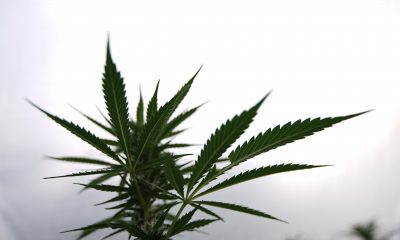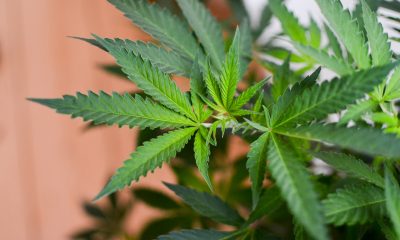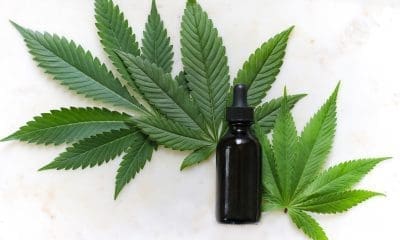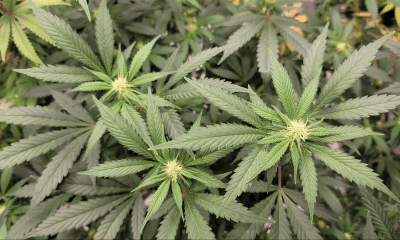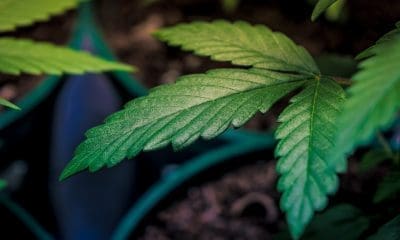Politics
Pennsylvania Governor’s Race Exposes Marijuana Divide Between Pro-Legalization AG And GOP Senator Who Called Reform ‘Stupid Idea’
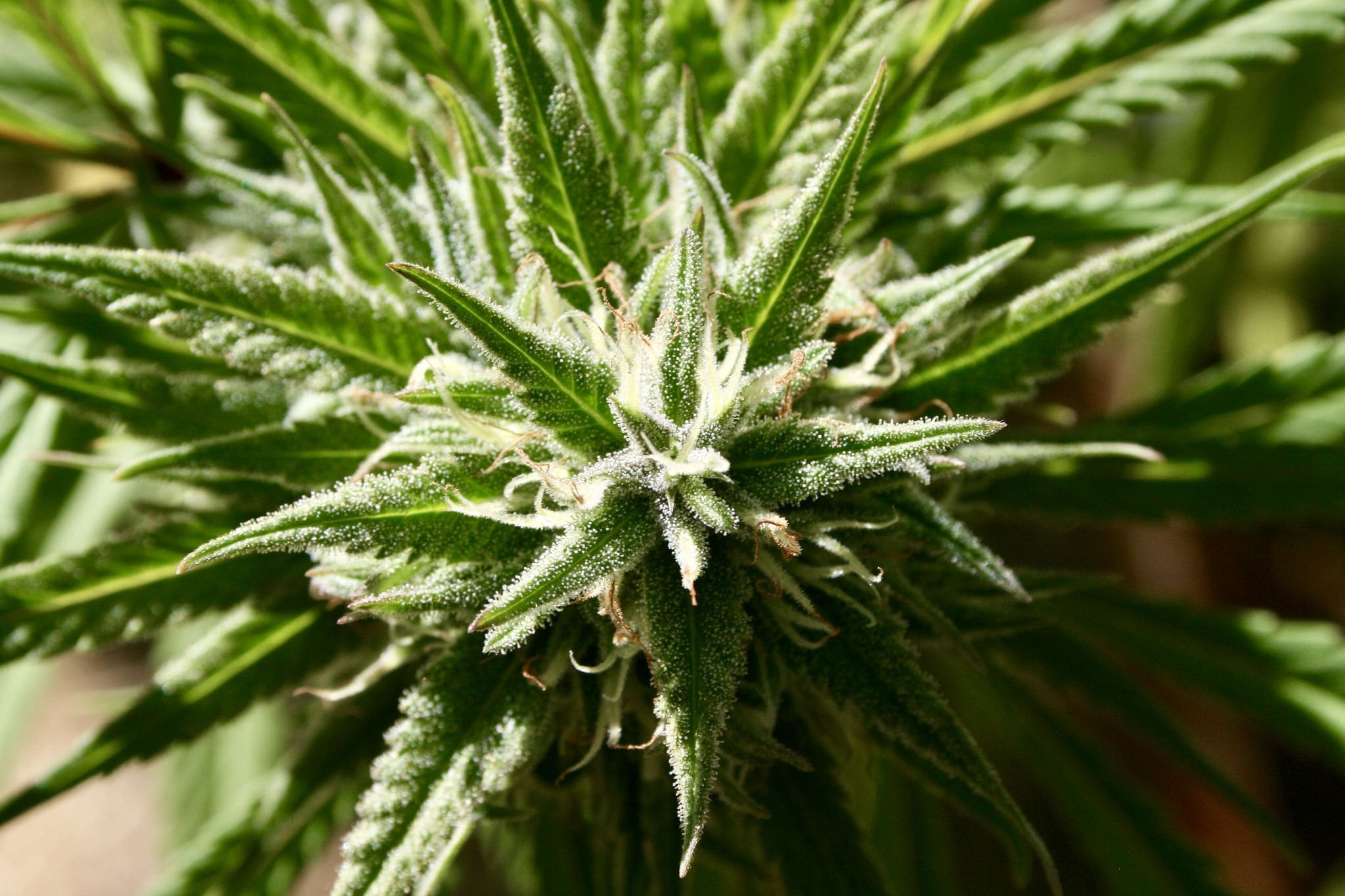
The two major party candidates vying to be Pennsylvania’s next governor are diametrically opposed on the issue of marijuana reform—with one backing legalization and the other insisting that it’s a “stupid idea” that has turned other states into “rat holes.”
As lawmakers prepare for another session when legalization will inevitably be proposed yet again, voters will be making a key decision on whether they usher in an administration led by someone who’s hostile to reform with Republican state Sen. Doug Mastriano or embraces cannabis policy reform with the Democratic nominee, Attorney General Josh Shapiro.
The effort to end marijuana prohibition has faced challenges in Pennsylvania. Even after incumbent Gov. Tom Wolf (D), who is prevented from running again by term limits, came around to legalization—with the support for Lt. Gov. John Fetterman (D), who is running for U.S. Senate—the GOP-controlled legislature has failed to advance legalization.
But while the cannabis has been widely discussed in Harrisburg in recent years and the two gubernatorial candidates have clearly contrasting views on the issue, it hasn’t been an especially prominent topic in the 2022 race.
Voters in the state might have seen drug policy reform take the spotlight in the social media spectacle that’s become the U.S. Senate race between Fetterman and TV health personality Dr. Oz, but it hasn’t received comparable attention in the gubernatorial contest at this point.
But a look at the candidates’ records shows that their differences on cannabis policy are stark.
As Governor, I'll legalize recreational marijuana — and it's going to deliver millions of dollars back to the Commonwealth of Pennsylvania.
— Josh Shapiro (@JoshShapiroPA) June 17, 2022
Shapiro has made his position clear: he supports adult-use legalization, believes it could provide an economic boon to the Keystone State and says its time for Pennsylvania to catch up with its neighbors in enacting the reform.
The majority of Pennsylvanians support marijuana legalization, and the boost it will bring to our economy.
Tell you what, let's win this race for Governor of Pennsylvania so we can get it done.
— Josh Shapiro (@JoshShapiroPA) July 1, 2022
In contrast, Mastriano has peddled dubious claims about the impact of legalization, challenged the current administration’s work to gather input from the electorate on the issue and voted against modest cannabis reform legislation in the state Senate.
It’s not a very popular position, as 58 percent of Pennsylvanians support legalization, according to a poll released last year.
Even as more voters across party lines have embraced the reform, Mastriano has taken a particularly aggressive stance against legalization. He said during an interview earlier this year that ending prohibition is “a stupid idea” that he opposes, arguing that cannabis is a gateway drug that leads to increased violent crime and impaired driving.
“I mean, there’s nothing good that’s come out of this,” he said of legalization, adding that he felt Fetterman’s listening tour across the state where he gathered public comments on the reform merely demonstrated that most people support medical cannabis.
In 2018, the senator said that federal data showed that legalization leads more people to drive while impaired—a claim that hasn’t been settled by science—and that it’s “killing our children and other innocent people.” Because of that, he said, “I don’t want this to be legalized. I say no. It’s time to draw a line in the sand.”
In that conversation, he also declined to condemn then-U.S. Attorney General Jeff Sessions for rescinding Justice Department guidance that laid out federal marijuana enforcement priorities. The decision raised concerns about the possibility of a federal crackdown.
The following year, Mastriano was again asked about efforts in the legislature to enact legalization and whether he’d support the policy change. He said no and argued that states where the reform has been implemented are seeing negative impacts.
“I watched with some amusement the salivating going on in Harrisburg because we’re told this is a great opportunity for taxable income—we’ll make a lot of money and be able to subsidize, of course, the first thing that we say is education, and then on
and on and on maybe infrastructure, blah, blah, blah, same old story,” he said. “No, absolutely not.”
“I look at Colorado for instance, and California—other states that have headed in this direction—and all it’s done is destroyed their society. It’s a decay on culture, and long-term, it’s going to create a crisis health-wise, because we hear all the good aspects of cannabis—and there are, of course, medical aspects, God created this plant here—but the abuse of it in smoking it, it has a deleterious effect on your lungs and respiratory system, et cetera.”
Mastriano went on in the interview to argue that places that have legalized marijuana are “turning into rat holes and to third-world back washes.”
In the legislature, Mastriano has stood against modest cannabis reform proposals that have advanced with bipartisan support.
He voted against a bill in June that was ultimately signed into law by Wolf that includes provisions to protect banks and insurers in the state that work with licensed medical marijuana businesses.
Mastriano also opposed a package of medical cannabis reforms that the governor signed in June 2021. While the senator has voiced some level of support for medical marijuana, he declined to back the proposal to expand the state’s program, in part by adding to the list of qualifying conditions and extending the patient supply limit.
—
Marijuana Moment is tracking more than 1,500 cannabis, psychedelics and drug policy bills in state legislatures and Congress this year. Patreon supporters pledging at least $25/month get access to our interactive maps, charts and hearing calendar so they don’t miss any developments.
![]()
Learn more about our marijuana bill tracker and become a supporter on Patreon to get access.
—
The senator has signed onto legislation that loosened restrictions preventing people with prior drug convictions from obtaining state occupational licenses, however, as well as a measure called the Justice Reinvestment Initiative that passed unanimously, seeking to more effectively reintegrate people with drug records into society.
The Senate did not have a chance to vote on a proposal that advanced through the House to secure protections for medical marijuana patients against facing DUI charges unless they are actively impaired behind the wheel.
While Mastriano has maintained firm opposition to legalization, a handful of his GOP Senate colleagues have pushed for reform, including Sen. Dan Laughlin (R), who filed a bill to end prohibition last year alongside Sen. Sharif Street (D).
And earlier this year, a key Pennsylvania Senate committee held three hearings on marijuana legalization, taking testimony that’s designed to help inform a reform bill that the panel’s Republican chairman is considering.
Sen. Mike Regan (R), who chairs the panel, circulated a cosponsorship memo last year along with Rep. Amen Brown (D) to build support for the policy change.
Shapiro, meanwhile, has campaigned on legalization and made clear that he would serve as a vocal proponent of the policy if elected governor.
It's time to legalize recreational marijuana in Pennsylvania.
Tax it, regulate it, and expunge the records of those who have served time for nonviolent marijuana-related offenses.
I'm going to build a path to justice, and It'll boost the economy.
— Josh Shapiro (@JoshShapiroPA) June 10, 2022
“It’s not often we compliment Doug Mastriano—but his commitment to taking the most out-of-touch, unpopular positions possible is almost impressive,” a spokesperson for Shapiro’s campaign told Marijuana Moment. “Mastriano’s hardline opposition to marijuana reform is further proof that he is wrong for Pennsylvania.”
“Growing our economy and keeping Pennsylvania communities safe are top priorities for Josh Shapiro—and as governor, he will work to ensure we legalize marijuana in a way that accomplishes those goals,” he said.
Marijuana Moment reached out to Mastriano’s campaign for comment, but a represent did not respond.
Shapiro, for his part, didn’t always support recreational legalization, however, and recognized as much in an interview with the Times Leader in March.
The attorney general said that he has come to realize that “as a chief law enforcement officer, quite frankly I don’t believe that we are made any more safe by arresting people” for non-violent cannabis offenses.
Look, the majority of Pennsylvanians support legalizing recreational marijuana, and I support boosting the economy — so I’ll legalize it as Governor.
It’s going to bring billions of dollars to Pennsylvania.
— Josh Shapiro (@JoshShapiroPA) May 29, 2022
“I think it actually diverts law enforcement resources away from the real challenge, like fentanyl, for example,” he said, adding that he sees economic opportunity in taxing and regulating cannabis as other states in the regions have done.
Here’s a plan that would deliver billions of dollars in revenue to Pennsylvania:
Legalize marijuana. Tax it. Regulate it. Expunge records.
Boost the economy.
— Josh Shapiro (@JoshShapiroPA) April 6, 2022
“I think as both a law enforcement leader and as a father—and as a would-be governor—it makes sense for us to take that approach,” Shapiro said.
Photo courtesy of Brian Shamblen.




